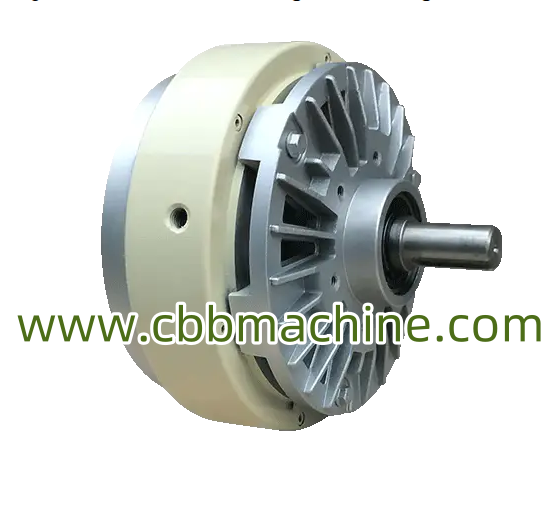Understanding the Role and Benefits of Magnetic Powder Clutch in Industrial Applications
A Magnetic Powder Clutch is an essential component in various industrial machinery, valued for its ability to provide smooth and adjustable torque transmission. This mechanical device allows for precise control over rotational power, making it a preferred choice in applications where variable torque and slip control are necessary. Whether in packaging machines, printing presses, or automation equipment, magnetic powder clutches play a vital role in improving operational efficiency.
What is a Magnetic Powder Clutch?
At its core, a magnetic powder clutch uses magnetic particles suspended between a driving member and a driven member to transmit torque. When an electromagnetic coil is energized, it creates a magnetic field that magnetizes the powder, causing it to form a solid bridge between the two rotating components. This connection allows torque to be transferred smoothly and proportionally to the magnetic field’s strength.
This design offers a significant advantage over traditional friction clutches because the torque transfer is progressive and controllable. Instead of a sudden engagement or slip, the operator can finely tune the transmitted torque, resulting in more precise machine performance and reduced mechanical wear.
Key Advantages of Using a Magnetic Powder Clutch
One of the main reasons industries choose magnetic powder clutches is their ability to provide adjustable torque without physical contact between friction surfaces. This reduces wear and tear, extending the lifespan of both the clutch and the connected machinery.
Additional benefits include:
Smooth Torque Transmission: The magnetic powder clutch enables gradual torque increase, which minimizes shock loads and vibration in machinery.
Wide Range of Torque Control: By adjusting the current to the electromagnetic coil, operators can precisely control torque output to suit different processing requirements.
Heat Dissipation: The design typically allows for efficient heat dissipation, helping to maintain stable performance even during prolonged use.
Low Maintenance: With fewer mechanical wear points, these clutches require less frequent servicing compared to traditional clutches.
Compact Design: Their size and lightweight nature make them suitable for machinery where space and weight constraints are critical.
Common Industrial Applications
Magnetic powder clutches are widely used across several industries where variable torque control is important. For instance:
Packaging Industry: They control tension on film and foil rolls during winding and unwinding processes to ensure smooth operation and prevent material damage.
Printing Equipment: These clutches maintain consistent tension during printing runs, crucial for quality and precision.
Textile Machinery: They help regulate tension on yarn or fabric rolls, reducing breakage and improving product quality.
Automation Systems: Their precise torque control is beneficial in conveyor systems, assembly lines, and robotic applications.
Labeling and Coating Lines: Magnetic powder clutches adjust tension to optimize the application of labels or coatings without tearing or misalignment.
The versatility and reliability of magnetic powder clutches make them indispensable components in many manufacturing environments.
Factors to Consider When Choosing a Magnetic Powder Clutch
Selecting the right magnetic powder clutch depends on several critical factors:
Torque Range: Understanding the required torque range is essential to match the clutch to your application’s load demands.
Voltage and Current Specifications: The coil’s electrical requirements must align with your machine’s power supply capabilities.
Size and Mounting: Space limitations and mounting options will influence the suitable clutch model.
Heat Management: Consideration of operating temperature and heat dissipation features is vital for continuous use scenarios.
Environmental Conditions: Dust, moisture, and other external factors can affect clutch performance, so a suitable design or protection may be necessary.
Working with knowledgeable suppliers can help clarify these factors and ensure the selected clutch matches operational needs.
Maintenance and Longevity
Magnetic powder clutches generally require minimal maintenance due to the absence of direct friction surfaces. However, periodic inspection is recommended to check for any signs of wear or coil performance issues. Keeping the clutch clean and ensuring proper ventilation will also help prolong service life.
Proper usage according to the manufacturer’s guidelines will maintain clutch responsiveness and efficiency over time. This translates to fewer unplanned downtimes and improved overall equipment effectiveness.

